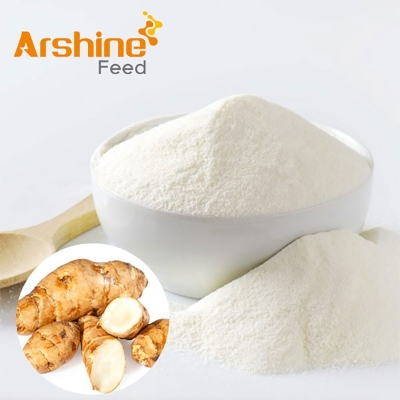EU suspended imports of some Chinese food due to antibiotic residues
-
Last Update: 2002-01-29
-
Source: Internet
-
Author: User
Search more information of high quality chemicals, good prices and reliable suppliers, visit
www.echemi.com
Introduction: on Friday, the European Commission on veterinary medicine proposed to suspend the import of some meat and seafood exported by China, the European Commission said The veterinary committee found that effective antibiotics remained in shrimp and prawn imported from China, which had potential harm to human body Chinese products affected by antibiotics include rabbit meat, poultry, honey, molluscs, crustaceans, frozen shrimp and pet food In 2000, the import volume from China was 327.7 million euros, and the import ban will take effect after the approval of EU administrative officials Prawns imported from China contain chloramphenicol, sparking food scares in parts of Europe this month The European Commission said foods not affected by the ban include fish from the sea, other than crustaceans and casings The European Commission will check Chinese food again with Member States at the end of February "A recent investigation by the EU food and veterinary office shows that China's drug residue control system is seriously flawed and the use of banned ingredients is very serious," the Commission said Germany banned animal feed from food chains on Friday, fearing it could be contaminated with chloramphenicol Chloramphenicol is only used to treat life-threatening diseases such as anthrax and typhoid, because chloramphenicol can cause fatal anemia A spokesman for the Federal Ministry of agricultural Consumer Protection said: "the banned food includes illegal ingredients, namely contaminated shrimp." "Whether chloramphenicol can be detected after mixing with other ingredients is irrelevant We have told German states not to feed food to animals and how to make their decisions." Chloramphenicol was first found in a batch of shrimp imported from China to the Netherlands, which was mistakenly mixed with animal food It was then mixed with other foods and shipped to Denmark, Poland, Romania, the Czech Republic, Austria and Germany At present, chloramphenicol has not been detected in contaminated food samples in Germany and Poland Chloramphenicol is banned from food processing in most countries The U.N Food and Agriculture Organization said this week that most countries are banning the use of chloramphenicol in food processing and require countries to remove chloramphenicol from the food chain Codex Alimentarius Commission said it was not possible to determine the maximum amount of residues allowed in food, so chloramphenicol should not be used in food Chloramphenicol caused two unrelated food safety warnings this month On January 18, German authorities seized beef from the Netherlands containing chloramphenicol On Thursday, France said it had returned the same batch of beef Last week, German officials said that chloramphenicol had been detected in a German calf last November, and the beef had almost been eaten Farmers used to give their calves chloramphenicol to make them whiter, but German officials said there was no evidence of such illegal activity in the case Thailand on Wednesday said it strictly banned the use of chloramphenicol in shrimp and food production (author:) share to feed Weibo share to:
This article is an English version of an article which is originally in the Chinese language on echemi.com and is provided for information purposes only.
This website makes no representation or warranty of any kind, either expressed or implied, as to the accuracy, completeness ownership or reliability of
the article or any translations thereof. If you have any concerns or complaints relating to the article, please send an email, providing a detailed
description of the concern or complaint, to
service@echemi.com. A staff member will contact you within 5 working days. Once verified, infringing content
will be removed immediately.







